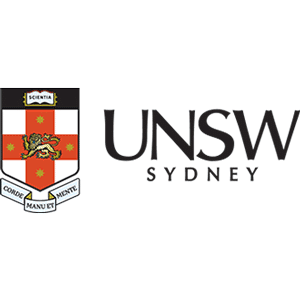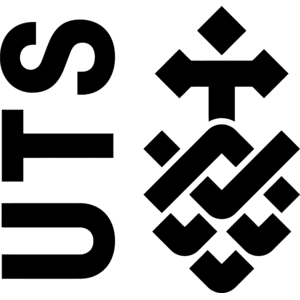Choose the best degree to achieve learning goals and advance your career.

A Master of Business Administration (MBA) online is a versatile course for any professional to upgrade their management skills and credentials. Let's explore the most in-demand specialisations and best online MBAs in Australia by category.
Highest Demand MBA Degrees
Specialising as part of your MBA studies allows you to build and signal expertise in a priority area of skill development. Here are five in-demand specialisations associated with job opportunities and high salary potential in Australia.
Best Courses
1. Finance
An MBA in Finance opens doors to lucrative career paths, including roles such as financial manager, investment banker, and financial consultant. Participants build strengths in financial analysis, investment strategy, risk management, and corporate finance.
Graduates with this degree also excel in general management positions. They thrive as senior executives or business managers, leveraging financial skills for well-informed, strategic decision-making.
AGSM at UNSW Sydney - MBAX (Finance)
The MBAX (Finance) from the Australian Graduate School of Management offers fully online and face-to-face modes. This part-time program requires two years to complete. It has 12 subjects, covering business topics such as leadership, strategy, marketing management, and data analytics, as well as specialised units in advanced finance, financial analysis, mergers and acquisitions, and financial modelling. Graduates are prepared for specialist finance and general management roles.
Marketing is a core business discipline that features in virtually every MBA degree. But you can go a step further and specialise in digital marketing.
An MBA (Digital Marketing) works for experienced marketers and those without a background in the field. Learn marketing from a manager's perspective, positioning yourself for executive marketing positions and general manager roles.
UTS Online - MBA (Digital Marketing)
The flexible MBA at UTS Online develops strategic leadership skills along with analytical capabilities to support evidence-based decisions. The Digital Marketing specialisation covers business subjects, management principles, and contemporary marketing. The accelerated online degree consists of 8 core subjects and 4 electives, with 6 digital marketing subjects to choose from. Topics include digital consumer behaviour, data-driven marketing, and emerging technologies.
The healthcare industry in Australia is huge and expanding. If you want to work in health as a manager, Australian universities offer the MBA in Healthcare Management.
This leadership and administration qualifications is open to graduates from all disciplines. Experience within healthcare or social care services is beneficial but generally not essential.
SCU Online - MBA (Health Services Management)
The affordable online MBA from Southern Cross University has a Health Services Management major. Students do a health industry project and two healthcare units. Health electives cover building a professional portfolio, leading change, governance, and strategic planning. Core business subjects include marketing, finance for managers, communication, and organisational behaviour. Students do one subject at a time in 7-week study blocks, with no exams.
UTS Online - MBA (Health)
For the MBA in Health at UTS Online, you need to select four electives from a large menu of health-related subjects. The 8 remaining subjects are on core business and management topics. Healthcare units cover planning and evaluating services, information management, leadership, and managing quality, risk and costs. This forward-looking MBA also explores business analytics, digital marketing, strategy and negotiation, and finance for managers.
A great investment as part of your managerial studies is to become knowledgeable in business analysis. With an MBA in Business Analytics, you'll learn how to leverage data to inform business decisions.
You can study for this specialisation with or without a relevant background. Graduates are trained to generate, present, commission, interpret and act on business intelligence.
James Cook University - MBA Global
Gain valuable data analytic skills with the MBA Global from James Cook University. Featuring a Data-Driven Decision Making study stream, students examine data analysis and decision modelling, information management and analytics technology, and data information: management, security, privacy and ethics. Learn the strategies to harness data to inform firm decisions. This flexible and affordable tech management degree can be completed part-time online.
UTS Online - MBA (Business Analytics)
The UTS Online MBA builds strategic leadership skills while developing analytical abilities. The Business Analytics major is open to professionals with and without an analytical background. Benefit from a program that balances management education with analytical subjects. Graduates learn how to leverage data to enhance data-driven decision-making. Topics include customer analytics, visual analytics, predictive modelling, and delivering organisational value.
An MBA in Technology Management unlocks the potential of new technologies. It prepares students to lead innovative projects and address data and cybersecurity challenges.
Graduates gain a unique combination of managerial skills and specialised technical knowledge. From general management roles to positions like Chief Information Officer and Technology Product Manager, this degree offers excellent salary prospects.
UTS Online - MBA (Technology Management)
UTS Online's flexible MBA has a Technology Management specialisation that's about integrating technology into company growth plans. Explore how to make enterprises agile, lead organisational change, align business and technology goals, and design product development with innovation in mind. It's an excellent program for forward-looking managers who others will turn to for technological guidance. The 12-subject program can be completed in 24 months of part-time study.
Find the Right Program
When choosing an online MBA, Unicurve founder and ANU Business Faculty graduate Andrew Lancaster advises candidates to consider their preferred specialisation. While "every MBA offers an opportunity to learn how to manage and lead," Dr Lancaster observes that choosing the right major has advantages: "Specialising allows students to target job-relevant skills, making for a richer learning experience."
It's also essential to look at the program's structure. "Many Australian universities run their programs as a series of individual subjects. Essentially, you complete one subject from start to finish during a 6-8 week study period, take a short break, and then move on to the next one." This is known as accelerated online study. Students study year-round in this format, thereby fast-tracking their degrees.
According to Dr Lancaster, who has reviewed dozens of online MBAs, such programs also tend to be at the cutting edge: "Being able to study year-round, without the complications of final exams, results in low-stress, efficient study following a consistent weekly schedule. This approach is also a positive indicator of program quality, suggesting the course has been designed with students' needs in mind."
Cost to Do an MBA Online in Australia
The cost of an online MBA is estimated at $50k in 2024 for a standard 12-subject program. This is the average tuition fee across five leading universities for business management degrees online. FEE-HELP loans cover these costs for eligible students.
Tuition fees, 2024
| University | Subject Fee | Fee x 12 Subjects |
|---|---|---|
| SCU Online | $3,080 | $36,960 |
| James Cook University | $3,700 | $44,400 |
| UTS Online | $4,383 | $52,596 |
| RMIT University | $4,680 | $56,160 |
| University of Adelaide | $4,986 | $59,832 |
| Average | $4,166 | $49,990 |
Source: Business school websites. Tuition fees are for 2024 enrolments. Updated: 2 May 2024.
The cheapest online MBA is provided by Southern Cross University (SCU) Online, with a total program fee $36,960 in 2024. This represents a large discount of $13k compared to average tuition fees.
Distance learning significantly reduces the economic cost of the degree, as it eliminates the need for travel and relocation expenses. Additionally, students can continue working full-time while studying, further maximising cost-effectiveness.
Shortest MBA Program in Australia

The shortest duration for an MBA in Australia is 12 months. An accelerated program enables you to earn the degree in 12 months of full-time study or 24 months part-time. Normally, an MBA is considered to be a 1.5 to 2-year program.
An MBA course is accelerated when you can study throughout the year without long breaks. The advantage of accelerated study mode is the ability to complete your degree 33% faster. Students shouldn't feel rushed as these courses enable continuous, steady progress.
Accelerated online MBA programs are typically offered part-time to accommodate full-time work. Students can complete one subject from start to finish in each 6-8 week study period, allowing for up to 6 subjects per year without taking time off work.
Why This Degree is Worth It

An online MBA is a sound, future-proof education investment with ample potential returns. The degree demonstrates high skill development in management and a capacity to lead.
The qualification offers significant benefits. It improves your performance capabilities, creates opportunities for executive roles, and raises your earning potential. Business master's graduates earn impressive salaries compared to other fields.
The ability to study online boosts the return on investment (ROI). Online postgraduate courses are designed for working professionals, allowing you to continue to take a salary and enhance your reputation at work. You are also free to choose the preferred course from any Australian university.
Do I Need a Degree to Do an MBA?
Not always. Many Australian universities offer a graduate certificate pathway for applicants without a degree. This pathway allows you to complete the first four subjects of an MBA and then continue with the remaining program.
Online business schools typically offer this option, enabling those without a bachelor degree to start MBA studies by attempting a Graduate Certificate in Business Administration. Professional experience of 4 or more years is often required, and a high GMAT score may also be considered.
For direct entry into master's programs in Australia, an undergraduate degree is almost mandatory. Typically, entry requirements stipulate a bachelor degree in any discipline and multiple years of work experience. English language proficiency is also essential.
Related: How to Do an MBA Without a Degree
How Hard Is an MBA?

Although getting an MBA can be hard, the degree is not reserved just for geniuses. Personal organisation and time management are crucial, especially for distance learning.
You'll need to study for around 10 hours per week for an accelerated online course (where students do one subject at a time). For other types of programs, allow around 7.5 hours per subject each week. These timeframes assume the hours are spent well, when you're reasonably fresh and focused.
Average students with a strong work ethic can succeed. Academic standards vary but are generally similar to undergraduate degrees. Maths skills aren't always essential, and some universities accept work experience instead of a degree. Start when you feel ready and motivated to achieve a higher goal.
Recent Posts
-
 12 Month MBA Online: One Year Fast Track!
2024-10-19
12 Month MBA Online: One Year Fast Track!
2024-10-19
-
 Why are Online MBAs Respected by Employers?
2024-10-03
Why are Online MBAs Respected by Employers?
2024-10-03
-
 MBA Without Exams: Coursework Only
2024-09-25
MBA Without Exams: Coursework Only
2024-09-25
-
 MBA in Business Analytics Online in Australia
2024-09-18
MBA in Business Analytics Online in Australia
2024-09-18
-
 MBA in Digital Marketing Online in Australia
2024-09-10
MBA in Digital Marketing Online in Australia
2024-09-10








